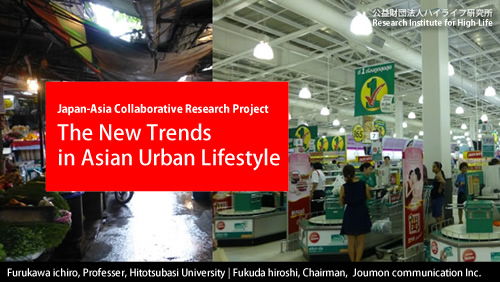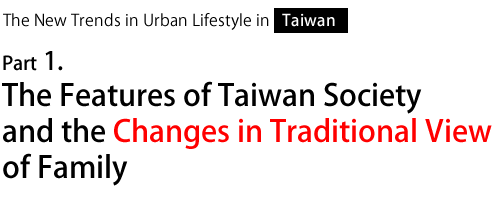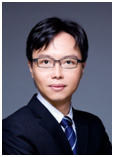Taiwan | Part 1 The Features of Taiwan Society and the Changes in Traditional View of Family
Japan-Asia Collaborative Research Project
Study report "The New Trends in Asian Urban Lifestyle"


"The New Trends in Urban Lifestyle in Taiwan" (serial in 3 parts)
Part 1 The Features of Taiwan Society and the Changes in Traditional View of Family
KAO, MING-HUNG、 Assistant Professor at Business School of Chang Gung University,Taiwan
Summary
Located just 270km off the Okinawa Ishigaki Island, Taiwan is a beautiful greenery island country, which is in the size of Kyushu Island and has the population of about 23million who has very pro-Japanese sentiment. Taiwan and Japan have such a lot of exchanges as the number of tourists from Japan to Taiwan was no less than 1.29 million and from Taiwan to Japan was 1.14 million in 2011. At the same time, Taiwan has a long relationship with Japan both economically and culturally. The Taiwanese teach such moral frameworks as "Reigi Renchi" (ethical behaviors and sense of honor) or "Jinai"(benevolence) from the elementary to the senior high schools, although Japan has abandoned these ideas, and inherit good sense of values, cultures and practices in proper manners. Also the people have very warm hospitality toward the foreign people.
For the benefit of future growth, Taiwan strengthens its coexistent relationship with China and promotes economic policies such as free trade with leading countries, as well as actively propels development of the Taipei metropolitan area for improvement of life environment and stronger business function. Furthermore, in order to compensate depopulation of the society, the country promotes various social policies including acceptance of many overseas brides or workers from ASEAN. In this way Taiwan is trying to transform itself into a new and rich country economically, socially, and culturally.
This report "The New Trends in Urban Lifestyle in Taiwan" features the trend of dynamically changing lifestyle and culture of the wealthy and middle classes in Taipei; they have started to influence China and the great Chinese market as well as the whole Asian market.
The Part 1 reports the economic problems such as growth recession and income gap, the aging with lower birthrate that precedes Japan, social issues including unmarried people, and the greatly changing lifestyle and working style in Taipei influenced by nuclear families, working parents, long-time work, and increasing number of temporary workers.

Principal Author KAO, MING-HUNG
Assistant Professor at Business School of Chang Gung University, Taiwan
EDUCATION
2011 Hitotsubashi University, Japan, Ph.D. in Business Management and Marketing
2000 National Sun Yat-sen University, Taiwan, MBA
1997 National Cheng-Chi University, Taiwan, B.A. in Advertising
WORKING EXPERIENCE
Brand Manager at Shiseido, Taiwan
Assistant Research Manager at Taylor Nelson Sofres, Taiwan
FIELD OF RESEARCH: Marketing
SUBJECTS OF STUDY: Consumer Behavior, Brand, Services Marketing
Co-Researcher:
Furukawa Ichiro, Professer, Hitotsubasi University
Fukuda hiroshi, Chairman, Joumon communication Inc.
Editing and Delivery Public-Interest Incorporated Foundation
Research Institute for High-Life http://www.hilife.or.jp/